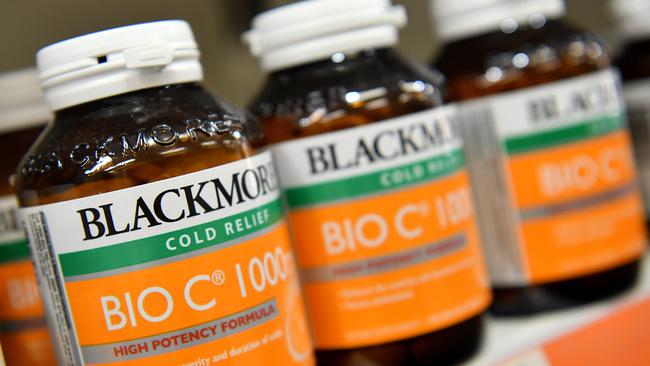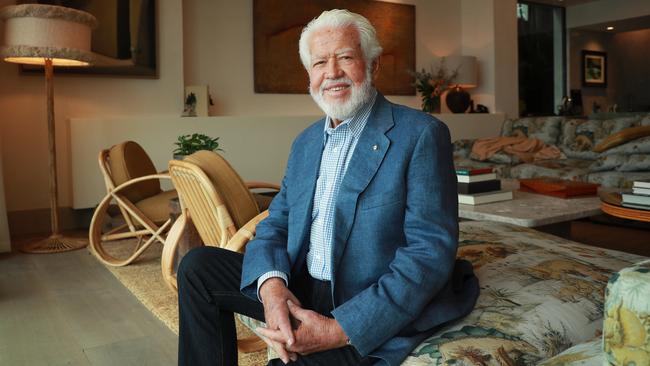
The workings of Kirin’s $1.9bn buyout proposal for Blackmores really started late last year.
Marcus Blackmore, an 18 per cent shareholder, had hired Rothschild & Co to test buyer interest in the business his family had founded and that he previously ran months earlier after becoming dissatisfied with its performance.
A list of prospective buyers had been compiled and they were being approached around the market by Mr Blackmore’s camp.
Kirin was not high on the list, possibility because it had been selling, not buying, assets in Australia.
It owned Lion Nathan here, buying just under half in 1998 and then the rest about a decade later.
It had also purchased National Foods for $2.8bn and Dairy Farmers for $910m.
But when it offloaded its dairy and drinks business, it substantially wrote down its value.
Kirin expressed interest in Blackmores late last year when approached.
Executives then flew to Australia in January and held meetings with Mr Blackmore and his advisers.

The Japanese-listed company laid out its growth plan and why Blackmores would be the right opportunity.
Kirin had started a health science division, but it was small.
Yet every few years, Kirin lays out its medium term strategic plan, and that included growing the health science division.
It also explained to Mr Blackmore what its future plan would be for Blackmores.
Kirin then met with the company and drafted in the consumer and retail team at investment bank UBS, led by David Raftis, to work on an acquisition plan, along with law firm Thomson Geer.
This involved quietly carrying out due diligence on the target.
Rothschild’s Australian team, led by managing director and consumer specialist Sam Prentice, was closely involved working for Mr Blackmore.
At Barrenjoey, Matthew Grounds, Edward Deng and industrials banker Erin Tinker provided defence advice for Blackmores, along with Adara Partners’ team led by Audette Exel and law firm Herbert Smith Freehills.
Various market participants were getting wind of something being afoot, as evidenced in recent weeks by the rising share price.
DataRoom reported three weeks ago that fresh corporate activity was believed to be afoot with Blackmores.
Kirin’s rival Suntory was understood to have taken a look at Blackmores in the past six months, as reported by this column, but the understanding now is that this was before Kirin’s involvement.
While there had been suggestions Asahi had been looking, sources close to the situation said it had never made any approaches about an acquisition of the business.
The $95-a-share offer from Kirin has been recommended by Blackmores’ board after months of agitation by Mr Blackmore about underperformance at the company.
The offer is a 23.7 per cent premium to the closing price of $76.79 on April 26 and equates to 19.7 times broker consensus earnings before interest, tax, depreciation and amortisation.
Private equity firms have also kept a watching brief on the company, but many took the view it was overpriced, and only recently, China has once again opened to Australia for business which makes it good timing by Kirin.
The current trend among suitors is that they are increasingly interested in targets where they can gain the backing from a major shareholder or a major strategic stake to gain certainty before launching their offer, and Blackmores fits this bill.
The same funding challenges that private equity face in the current rising interest rate environment for deals do not exist for Kirin, which is among the Japanese groups looking for growth outside their country and is funding the deal through cash and existing debt facilities.
The stock can also be seen as defensive in the current inflationary environment.
When Kirin first ran the ruler over Blackmores late last year, its share price was $65 and its market value about $1.3bn.
In 2016, Blackmores shares sailed over $200 as vitamins were hotly sought after by Chinese consumers, so only time will tell if Blackmores is good value.
The acquisition will add to the other investments in Kirin’s health science portfolio, including a 30 per cent stake in supplements business Thorne, a 33 per cent stake in Japanese dietary, supplements and skincare business Fancl, and Japanese supplements ingredients manufacturer Kyowa Hakko Bio.




To join the conversation, please log in. Don't have an account? Register
Join the conversation, you are commenting as Logout